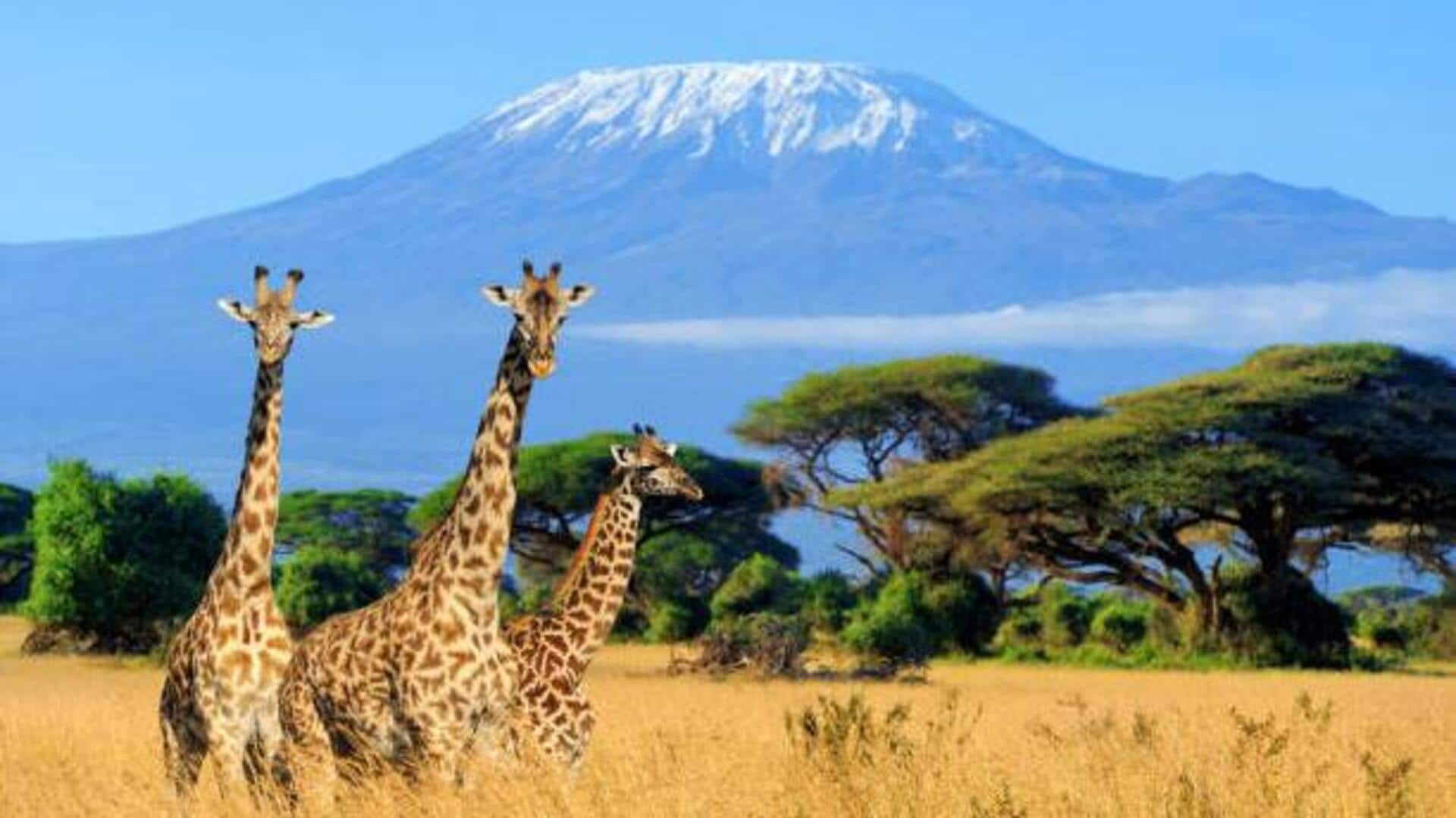
How to explore Kenya responsibly
What's the story
Kenya is a dream destination for eco-conscious travelers, with its diverse landscapes and rich wildlife. The country offers a range of sustainable adventures that let you explore its natural beauty while supporting local communities and conservation efforts. From pristine beaches to lush forests, Kenya has something for everyone looking to connect with nature in an environmentally friendly way.
#1
Explore the Maasai Mara sustainably
The Maasai Mara is famous for its wildlife and breathtaking landscapes. Eco-conscious travelers can go on guided walking safaris or bike tours to witness the region's beauty without disturbing the wildlife. Many lodges also practice sustainable tourism by using solar power and supporting local communities. These experiences give you an immersive way to explore one of Africa's most iconic destinations.
#2
Discover coastal gems with minimal impact
Kenya's coastline has some beautiful beaches and coral reefs waiting to be explored. Eco-friendly beach resorts focus on minimizing their impact on the environment by using renewable energy sources and promoting responsible tourism practices. Snorkeling or diving in protected marine parks gives you a chance to witness the vibrant underwater life while ensuring its preservation.
#3
Trek through Mount Kenya's eco-trails
Mount Kenya offers several trekking routes for eco-conscious adventurers. The trails are well-maintained to minimize environmental impact and promote conservation efforts. Trekking through this UNESCO World Heritage Site allows you to witness diverse ecosystems, from rainforests to alpine zones. This activity supports local guides who contribute to sustainable tourism initiatives.
#4
Experience community-based tourism in rural areas
Rural Kenya has community-based tourism programs that let travelers experience authentic cultural exchanges while contributing to local economies. These programs usually include homestays or village tours, where visitors can learn traditional crafts or participate in agricultural activities using sustainable practices. This not only promotes cultural understanding but also helps preserve traditional ways of life in rural communities.